
In this newsletter:
QUBES News
- Featured QUBES Partner of the Month: DBER Scholars-in-Training, a Society for the Advancement of Biology Education Research (SABER) Committee
- “I Was Told There Would Be No Math Involved” - A guest commentary about quantitative biology in this month’s The American Biology Teacher.
- The blog tool within groups helps project leaders to reach their community. Check out these recent blog posts from BioQUEST!
- QUBES Near You: Members of Team QUBES Invite you to connect with them at these upcoming conferences.
- Did you present at a conference this summer? Learn about the benefits of sharing your conference materials on the QUBES Resources System.
News from QUBES Partners
- Join ASM Education for an exciting line-up of webinars this fall!
- BioTAP holding second annual virtual conference on graduate teaching assistant teaching professional development - apply to present!
- Join a Technical Working Group (TWG) and help shape the National Ecological Observatory Network (NEON) science and data.
- Attend the 3rd NIBLSE Conference, “Integration of Bioinformatics into Life Science Education: Roadmap for the Future”.
Featured QUBES Partner of the Month: DBER Scholars-in-Training, a Society for the Advancement of Biology Education Research (SABER) Committee
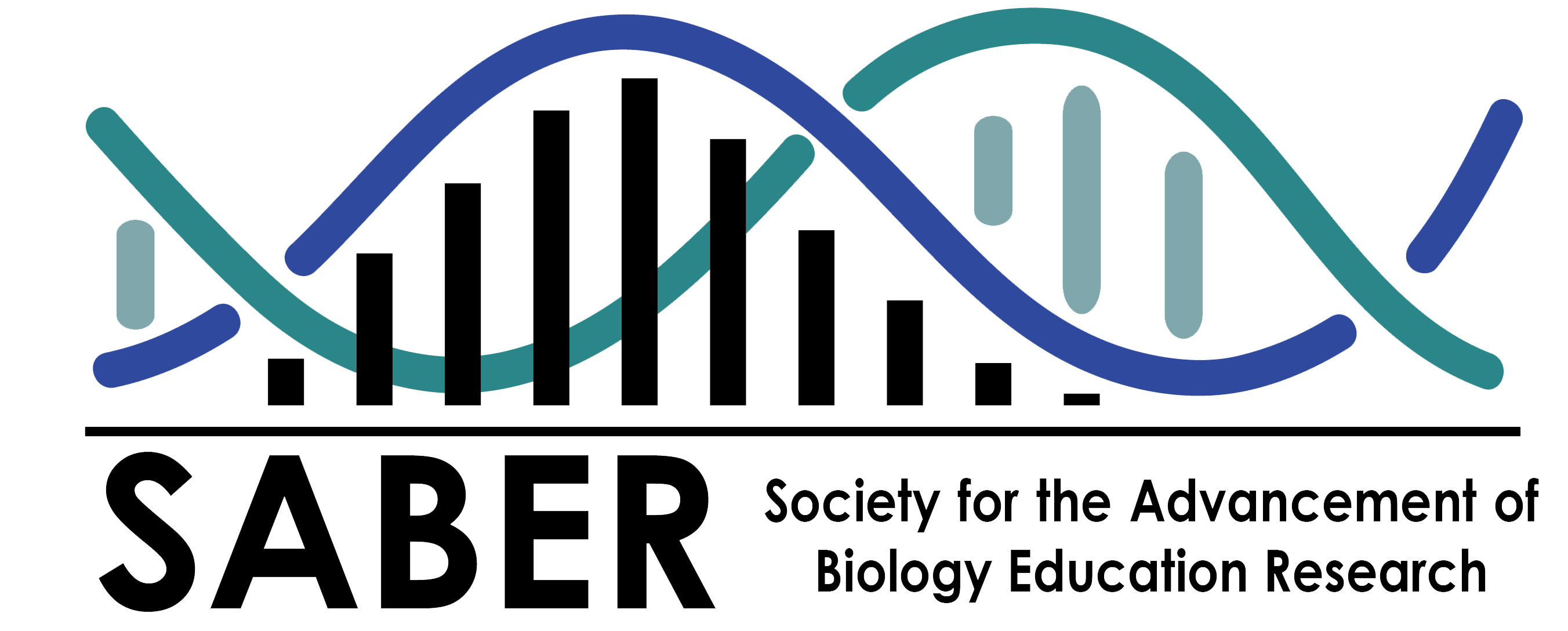
QUBES partners with organizations and groups who are doing exciting things in undergraduate education. Every so often we select one of these partners to feature in our newsletter to raise awareness of their work, celebrate recent activities, and announce upcoming opportunities.
This month’s featured QUBES partner is DBER Scholars-in-Training (DBER-SiT), a new committee of the Society for the Advancement of Biology Education Research (SABER). SABER is a scientific community whose members develop theory and generate evidence with the goals of improving post-secondary biology education. SABER fosters discipline-based education research in biology and its dissemination. DBER-SiT is a SABER Committee that supports graduate students and postdocs doing disciplinary-based education research (DBER) through professional development opportunities, travel awards, and community building.
There are several ways QUBES users can engage with DBER-SiT:
-
Learn about the activities of their 4 subcommittees: Bylaws and Elections, Professional Development, Funding, and Media.
-
Follow them on Twitter @DBER_SiT.
-
Contact Sarah Andrews at sarah.andrews-1@colorado.edu to get added to the DBER-SiT email list.
-
Participate in their first election! Nominations for new DBER-SiT leadership positions have been collected and elections for these positions have commenced. The election will be live September 20–27 so be sure to visit the DBER-SiT website during that time to learn about the candidates. Election results will be announced via email, Twitter, and on the DBER-SiT website on October 7.
Explore other SABER Special Interest Groups.
DBER-SiT is also one of several SABER Special Interest Groups. Learn about them by following the links below or browsing the SABER Special Interest Group site on QUBES.
-
Promotion and Tenure in Biology Education Research - resource and point of connection for tenure-track DBER/SoTL Assistant Professors in higher education and individuals with an interest in post-tenure review and promotion from Associate Professor to Full Professor.
-
Physiologists - a group for individuals with an interest in physiology education.
-
Motivation Research group - a group for individuals with an interest in motivation research in education.
-
Experimental Design Concepts in Course-based undergraduate research experiences (EDCCUREs) - a group for individuals interested in exploring the elements of experimental design currently emphasized within course-based undergraduate research experiences (CUREs).
-
Community Colleges and Biology Education Research (CC Bio INSITES) - a network of Biology Education Researchers at two- and four-year institutions who come together to discuss and improve community college scholarship and teaching in biology.
-
Undergraduate students - a special interest group for undergraduates.
Attend a SABER meeting.
The SABER West 2020 regional meeting will be held in Irvine, CA, January 18–19, 2020. Abstracts for presentations are due September 20. Learn more on the meeting website.
Save the date for SABER 2020 meeting, which will be held July 23–26, 2020, at the University of Minnesota.
“I Was Told There Would Be No Math Involved” - A guest commentary about quantitative biology in this month’s The American Biology Teacher.

A guest editorial by Vedham Karpakakunjaram (Montgomery College) and QUBES PI Kristin Jenkins (BioQUEST) appears in the September issue of The American Biology Teacher. The commentary discusses the need for incorporating quantitative biology into the life sciences curriculum and the challenges that faculty, especially those at community colleges, face in doing so.
The article suggests several professional development opportunities and resources that are available to support faculty in their endeavor to incorporate quantitative skills into their teaching. One such resource is the authors’ newly funded Research Coordination Network in Undergraduate Biology Education (RCN-UBE), Quantitative Biology at Community Colleges. The main goal of this project is to build collaborations of faculty in biology and quantitative fields, particularly at two-year institutions, to develop methods to enhance students' data acumen within the first two years of standard biology courses. Browse the Open Education Resources (OER) developed by members of this network and join their group on QUBES to stay apprised of activity and opportunities within this project as it continues to develop.
The blog tool within groups helps project leaders to reach their community. Check out these recent blog posts from BioQUEST!
QUBES groups are equipped with the cyber and social infrastructure that allow education project leaders to share content and conversation with members of their community, the broader QUBES community, and beyond. Group features include:
One underused group feature is the group blog, which provides a simple way to post articles and news items. After activating the blog in the group settings (we recommend making available to any hub visitor), the blog will appear in the black expandable sidebar on the left side of the page.
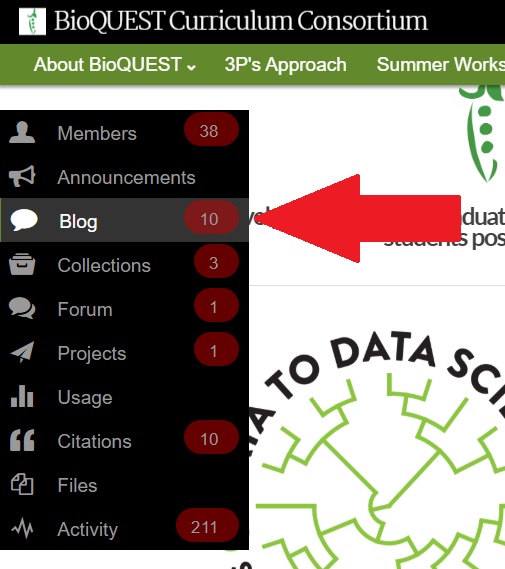
Group managers can enable RSS feeds for the group blog in the blog settings so that members of their community can receive notifications about new blog entries. You can also select a privacy setting for each blog post. We recommend setting posts to “Public” so that anyone visiting your site can view blog posts. Each blog post receives a unique URL so that you can point to blog posts in your project’s newsletter, group announcements, forum posts, social network platforms, etc. to synergize you project’s communication efforts.
As an example, BioQUEST, a core QUBES partner whose leadership team overlaps with that of QUBES, uses their group blog to share news and opportunities with their community. They also link to select blog posts in their newsletter (subscribe here). Learn more about BioQUEST at https://bioquest.org/ and join the BioQUEST group to stay up to date on BioQUEST activities.
Check out some recent posts on the BioQUEST blog below that may be of interest to the QUBES community:
Group managers - If you have a group blog post that you’d like shared with the broader QUBES community or have questions about using the blog tool or other communication strategies to build community around your education project, please contact Elia Crisucci (emc22@pitt.edu) or post in the QUBES Support Community for Partner Projects forum.
QUBES Near You: Members of Team QUBES Invite you to connect with them at these upcoming conferences.
In QUBES Near You, we let you know which upcoming conferences the members of the QUBES team will be attending in case you’d like to connect with them. Members of Team QUBES are always looking to meet others who have a passion for quantitative biology education. See where they’ll be this fall... and don’t forget to ask them for a QUBES sticker!
 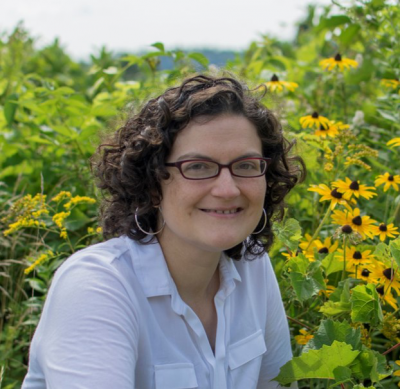 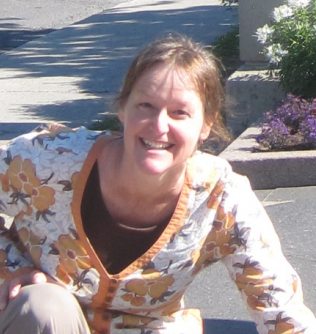 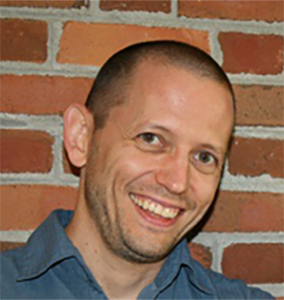
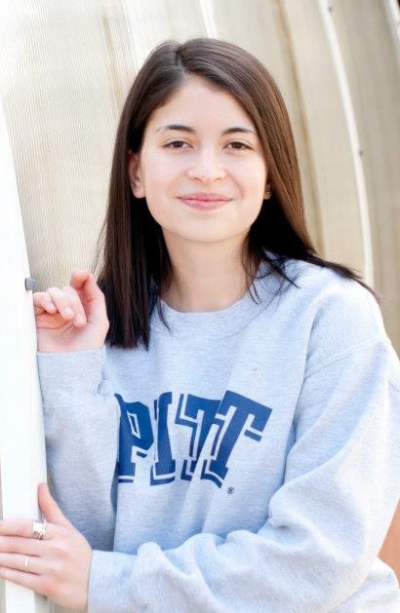 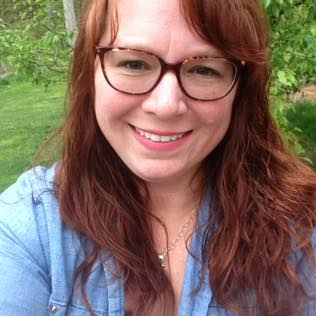 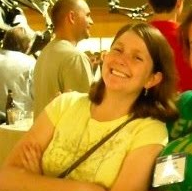 
Top row, from left to right: Sam Donovan (Director of OER), Carrie Diaz Eaton (Director of QUBES Consortium), Kristin Jenkins (Director of BioQUEST), Drew LaMar (Director of Cyberinfrastructure)
Bottom row, from left to right: Hayley Orndorf (Universal Design of Learning Manager), Sarah Prescott (QUBES Ambassador), Deb Rook (Faculty Mentoring Network Manager), Jeremy Wojdak (Director of Professional Development)
| If you will be attending... |
Feel free to look for... |
Gateways 2019
Sept. 23–25, San Diego, CA |
Drew LaMar |
Open Education: Opportunities for equity, challenges for sustainability
Oct. 17–19, Lewiston, ME |
Sam Donovan
Carrie Diaz Eaton
Drew LaMar
Jeremy Wojdak |
Opening the Pathway to Technician Careers: A Conference for Biology Teachers of Deaf Students
Oct. 14–16, Rochester, NY |
Kristin Jenkins
Hayley Orndorf |
ATE Principal Investigators’ Conference
Oct. 23 - 25, Washington, DC |
Kristin Jenkins |
The 16th Annual Open Education Conference
Oct. 30 - Nov. 2, Phoenix, AZ |
Hayley Orndorf
Sarah Prescott |
2019 SACNAS - The National Diversity in STEM Conference
Oct. 31 - Nov, 2, Honolulu, HI |
Carrie Diaz Eaton |
The Boulder Summit on Discipline-Based Professional Development
Nov. 6–8, Boulder, CO |
Deb Rook |
The 2019 National Association of Biology Teachers Conference
Nov. 14–17, Chicago, IL |
Kristin Jenkins |
Did you present at a conference this summer? Learn about the benefits of sharing your conference materials on the QUBES Resources System.
QUBES has an open education resources (OER) publishing platform that makes it easy to share your work and track its impact. Some key features of the QUBES Resources System include:
-
Each resource is issued a Digital Object Identifier (DOI), which makes it easy to track and find your resource.
-
Each resource has descriptive metadata and tags that make it easier for others to find your resource in searches.
-
The system supports versioning of your resource and highlights differences between versions.
-
The system automatically tracks views, downloads, and adaptations of your resource as indicators of how widely your materials are being used.
The QUBES Resources System is a very flexible system, allowing users to share a variety of resources, including conference materials. But why share your presentation, poster, or workshop materials using the QUBES open education resources sharing platform? Because it makes it easy for you to cite your conference materials, document how frequently they are being read, and keep track of different versions of your materials as your work evolves.
Browse examples of conference materials shared on QUBES below. Please note that while the examples listed below are materials from conferences that were hosted on QUBES, materials from ANY conference could be published with the QUBES Resources System. See for example, materials for a workshop entitled "Backward Design for Teaching Ecology Courses”, which was presented at the Ecological Society of America (ESA) 2019 Annual Meeting and recently featured as a Resource of the Week.
Learn more about open education resources on QUBES. Browse OER materials.
Have you professionally benefited from publishing your work on the QUBES Resources System? We want to hear your story! Please contact Elia Crisucci at emc22@pitt.edu.
Project leaders - QUBES staff can help you leverage the QUBES cyber and social infrastructure to support successful conferences and workshops for your project. Please contact Elia Crisucci at emc22@pitt.edu to learn more.
Join ASM Education for an exciting line-up of webinars this fall!
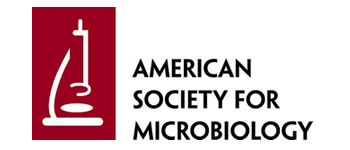
New to grant writing and need funding? Seasoned grant writers share their best tips in the American Society for Microbiology Grant Writing webinar series, September 12–December 12!
Breathe new life into your biology and microbiology courses with innovative tips and tools from award-winning educators! The Strategies for Teaching Undergraduate Biology has monthly webinars about hot topics in education. The next webinar will be presented by Dr. Sandra Porter, “Staying Current: What Science & Skills do Educators Need to Know and Teach in Biotechnology?” on October 8.
BioTAP holding second annual virtual conference on graduate teaching assistant teaching professional development - apply to present!
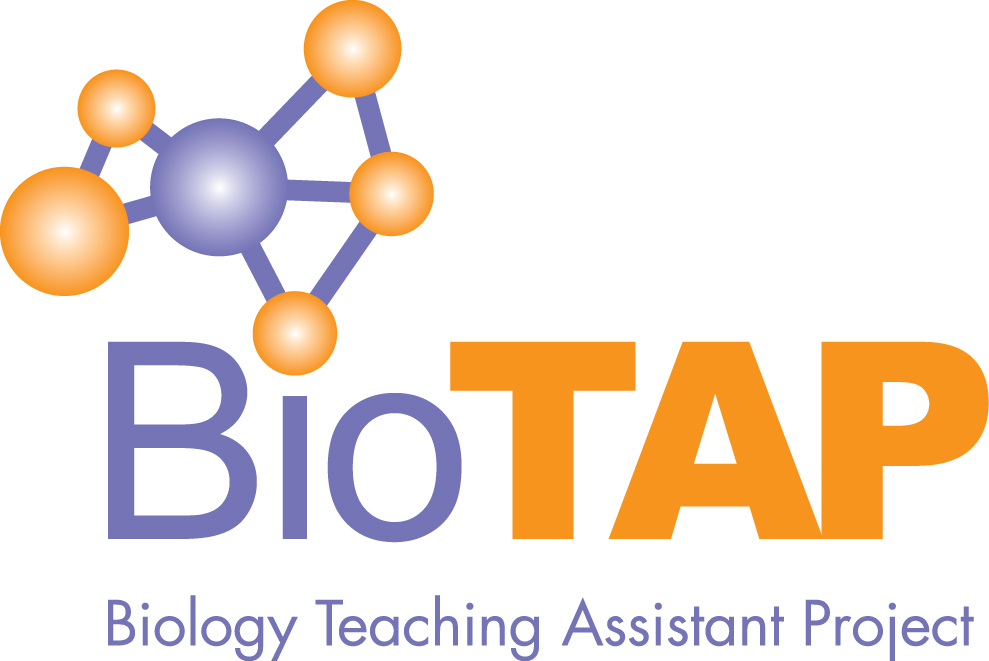
Please find a message below from the Biology Teaching Assistant Project (BioTAP) leadership team.
We are excited to announce the second BioTAP Virtual Conference to be held this fall! Day and time is TBD, but will likely be in late October or early November.
As before, the conference will be held via Zoom, which will allow folks to join and leave the conference as their schedule permits.
We are inviting submissions by BioTAP network members to present their research on professional development for graduate teaching assistants. Depending on the number of submissions, these may be traditional 15 minute talks or lightning talks. The deadline for submissions is September 23, 2019, with notification the week of September 30, 2019.
Please feel free to share this message with others you think may be interested in presenting.
Let us know if you have any questions, and we sincerely hope you present and/or join us for this event. More info will be sent soon about conference specifics.
Your BioTAP Team,
Beth Schussler, University of Tennessee, Knoxville
Grant Gardner, Middle Tennessee State University
Gili Marbach-Ad, University of Maryland
Kris Miller, University of Georgia
Judy Ridgway, Ohio State University
Join a Technical Working Group (TWG) and help shape the National Ecological Observatory Network (NEON) science and data.
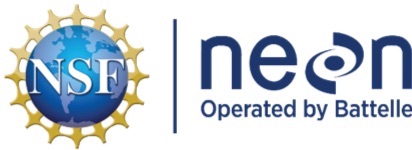
Interested in ensuring that the National Ecological Observatory Network (NEON) is a valuable community resource? Consider joining a Technical Working Group (TWG) and help shape NEON science and data. NEON’s operator, Battelle, relies on almost two dozen TWGs to advise on the NEON project. Advisory groups work on topics ranging from data standards to specific collection methods. The overarching objective of TWGs is to ensure that the design and operation of the observatory is based upon sound scientific rationale and good engineering practice. TWG members also help make certain that NEON infrastructure, data and programs are a valuable community resource.
NEON is accepting nominations for all its TWGS, though they are especially looking for members for the Engagement TWG, Ecological Forecasting TWG, Tick TWG, and Tundra and Taiga TWG.
Now that the NEON program is in initial operations, they are seeking TWG nominees that represent a diversity of backgrounds, perspectives, and career stages. If you are interested in helping them solve important science and technical questions related to operating and maintaining NEON observatory subsystems, nominate yourself or someone else today. NEON is currently accepting nominations through September 30, 2019 and will notify all nominees of whether they have been selected by October 31. For groups that are needed for longer than a year, nominations will be requested annually thereafter.
Learn more about NEON TWGs and how to join.
Attend the 3rd NIBLSE Conference, “Integration of Bioinformatics into Life Science Education: Roadmap for the Future”.
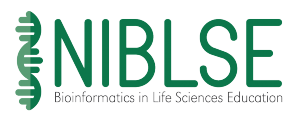
There is still room to attend the 3rd NIBLSE conference, “Integration of Bioinformatics into Life Science Education: Roadmap for the Future”. The conference will be held October 9–11, 2019, in Omaha, NE. Information and links, including a link to the conference registration page, can be found on the NIBLSE website on QUBES.
|